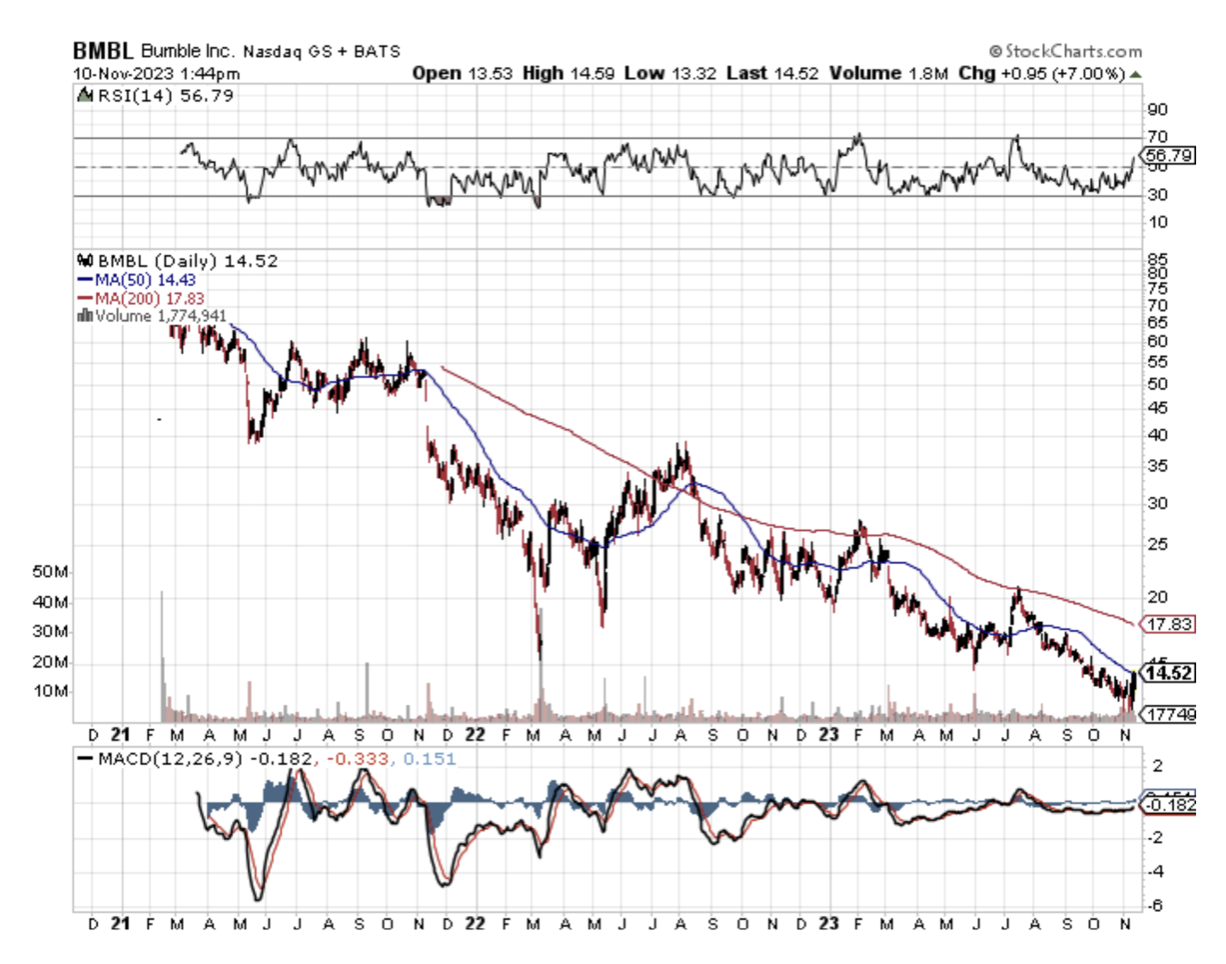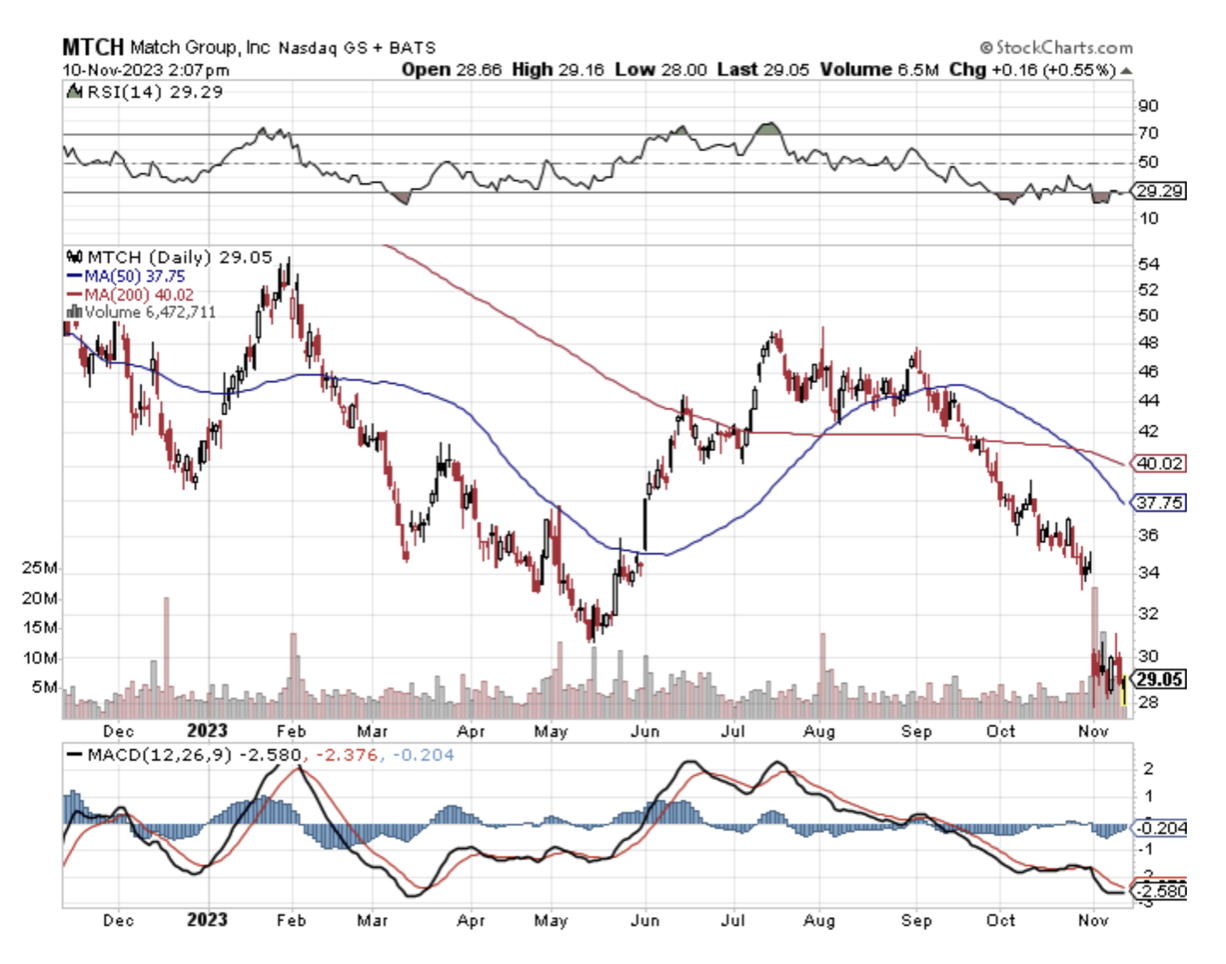Artisanal Tech Feels The Heat
Bumble (BMBL) is a dating app in which women initiate communication first and their CEO Whitney Wolfe Herd deciding to quit offers deep insight into the state of tech firms.
Remember that Wolfe Herd is the person who established this app and presided over an 83% decline in share price since an initial public offering over two years ago.
Clearly, the writing was on the wall for Wolfe Herd, but she shouldn’t receive all the blame.
There is an industry-wide malaise occurring in some sub-sectors of technology and smartphone dating apps are one of them.
Some investors have started to gain a sense that these apps don’t have enough bang for the buck and these business models are gaining in popularity.
In the past few weeks, the popular dating app Tinder announced a new feature rolling out a new subscription tier for $500 per month boasting it would unlock premium profiles at that price point.
Asking for $6,000 per year is a serious overreach for a dating app and I believe that type of ask will alienate some of the core users.
These apps are supposed to scale but not at $6,000 per year.
What else is the big challenge for Bumble?
How to get consumers to commit money to a dating app when the economy is so uncertain?
That’s the conundrum.
In the months after the pandemic, online dating apps became the hottest ticket in town as the only way to not sacrifice a dating life.
Bumble, which currently has 40 million active monthly users across its portfolio of apps, is now fiercely fighting for users with its competitor Match (MTCH).
As with some of these niche tech businesses, opening up the economy from the lockdowns has been a tough pill to swallow as it relates to the knock-on effect on future sales.
In terms of pure market sentiment, investors have determined a strong likelihood that the lockdowns were the high water mark for these artisanal apps.
Unfortunately, these sub-sector stocks are labeled as a time and place stock and not one that is worth holding in times of chaos and upheaval.
We are far from the start-up frenzy peak where entrepreneurs could make hopes based on fantasies into an app and concoct a targeted addressable market.
It’s not going to cut it anymore, because the bar is so much higher.
In the era of cheap money, funding niche sub-sectors of technology was still quite fashionable and mainstream.
I would even say it caught fire.
Then there is the issue of artificial intelligence concerning how this type of technology delivers poison to the innards of the business model.
How?
Dating apps could easily turn into bots chatting to bots to monetize users with no real value. This would constitute a fake business. Ad sponsors could be paying for this to happen. AI integrates into online dating apps quite poorly because it strips away the authenticity of the end user which undermines communication and the underlying asset.
A fake business would mean a crash in the underlying equity value. Of course, we are not even close to that possibility right now, but keep in mind that force-feeding management to one-up AI capabilities could unearth some bizarre unintended consequences.
Ultimately, the end of 2023 is a dynamic time in technology because the trajectory of companies has never been so uncertain, fluid, and challenging at the same time.
Expect quite a few of these artisanal apps to get swept into the dustbin of history.
Readers need to stay away from sub-sector technology stocks like Peloton (PTON) and instead go for stocks that have broader exposure to more wallets where artificial intelligence will act as a tailwind.
Plus, many people use Instagram, X, or Facebook for dating anyway. No need to overcomplicate life.




